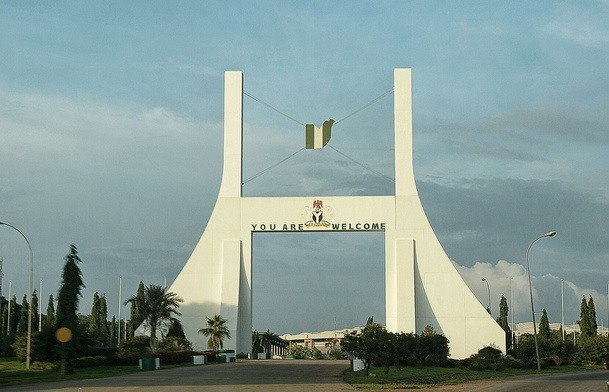Address insecurity in Abuja
The recent attack on the staff quarters of the University of Abuja at Giri in Abuja, where some staff including a professor of economics and their family members were kidnapped has revealed the worsening insecurity situation in the Federal Capital Territory and its environs. The kidnappers who were reportedly armed with sophisticated weapons stormed the […]

The recent attack on the staff quarters of the University of Abuja at Giri in Abuja, where some staff including a professor of economics and their family members were kidnapped has revealed the worsening insecurity situation in the Federal Capital Territory and its environs. The kidnappers who were reportedly armed with sophisticated weapons stormed the staff quarters of the university in the early hours of Tuesday, November 2, 2021, and laid siege for more than two hours. After shooting sporadically into the air, they broke into houses and picked their victims.
The Vice Chancellor of the University, Prof. Abdul-Rasheed Na’Allah, who was among the early callers said, “This is becoming a daily affair. It is very sad that three staff members and three of their children have been abducted.” Reacting to the incident, the FCT Commissioner of Police, Babaji Sunday, confirmed that a joint operation involving the police, personnel of the Nigerian Army 176 Guards Battalion and others had been mobilised to rescue the victims.
Four days after the attack, the police in Abuja said a joint team of security agencies had rescued the six persons abducted. Although there were reports that the kidnappers contacted families of the victims and demanded N300 million as ransom, the spokeswoman for the FCT Police Command, Josephine Adeh, noted that the victims “Were rescued and reunited with their families through a joint operation with other security agencies”. She also said some arrests had been made. The Head of Information Unit of the University of Abuja, Dr Habib Yakoob, said no ransom was paid to rescue the victims.
Few days before the attack on the University of Abuja staff quarters, a similar attack had been reported where the Vice Principal of Government Junior Secondary School (GJSS), Yebu, in Kwali Area Council of the FCT, Mohammed Nuhu, was kidnapped when the criminals invaded the school’s staff quarters. This attack also followed the abduction of the Vice Principal of GJSS, Kwaita, Abubakar Abdullahi Gbedako, who is also the Chief Imam of Yangoji Central Mosque, in Kwali Area Council.
Other communities in the FCT that have been attacked this year include Tungan-Maje in Gwagwalada Area Council; Pegi, Chukuku, Gwombe, Rubochi and Kulo villages, in Kuje Area Council; Piri, Awawa, Gada-Biyu and Dangara, in Kwali Area Council; and several neighbourhoods in Kubwa district of the FCT. So far this year, 128 persons have been kidnapped from different locations within the FCT.
It is very unfortunate that instead of insecurity dissipating, it is worsening. We condemn the abductions and condole with victims of the incident. Given the statistics, it is evident that security agencies have not learnt to strategise even as recent kidnap attacks reported in Niger State communities bordering the FCT showed that bandits were closing up on Abuja. In fact, there were reports that the criminals have a camp around Kuje in the FCT. Barely a day after the university incident, security operatives blocked major roads in the FCT, under the guise of screening motorists and commuters. This development caused residents untold hardship as many had to stay on the roads for hours just as some returned to their homes. The question is, why wait until the criminals strike before taking action. Also, if indeed, they were expecting results, was the two-day blockade enough or was that just a show. This makes one wonder if indeed the security operatives are serious about ending the problem.
The abductions in the nation’s capital, which are now quite frequent should be viewed as an embarrassment by the security agencies. What the criminals are trying to prove is that nowhere is sacred and that they can get access easily. This should not be the case. Security operatives should feel challenged by these acts and do everything to tackle criminality across the country. They cannot afford to appear helpless. The latest incidents show that security operatives have failed to aptly use intelligence to tackle the activities of bandits. The safe rescue of victims abducted from the University of Abuja staff quarters by a joint team of security personnel points to the fact it is possible to curtail and track activities of bandits if the necessary chain of operational commands and response strategies are in place. If the government through the various security agencies fails to give adequate protection to citizens, they are likely to make personal arrangements for self-protection; a dangerous option that has implications for national security. The country’s Commander-in-Chief has a constitutional responsibility to exercise the powers conferred on him by the title to summarily deal with the worsening state of insecurity in Abuja and other parts of the country. We cannot continue to lament the situation. The government must act and it has to do that now.
